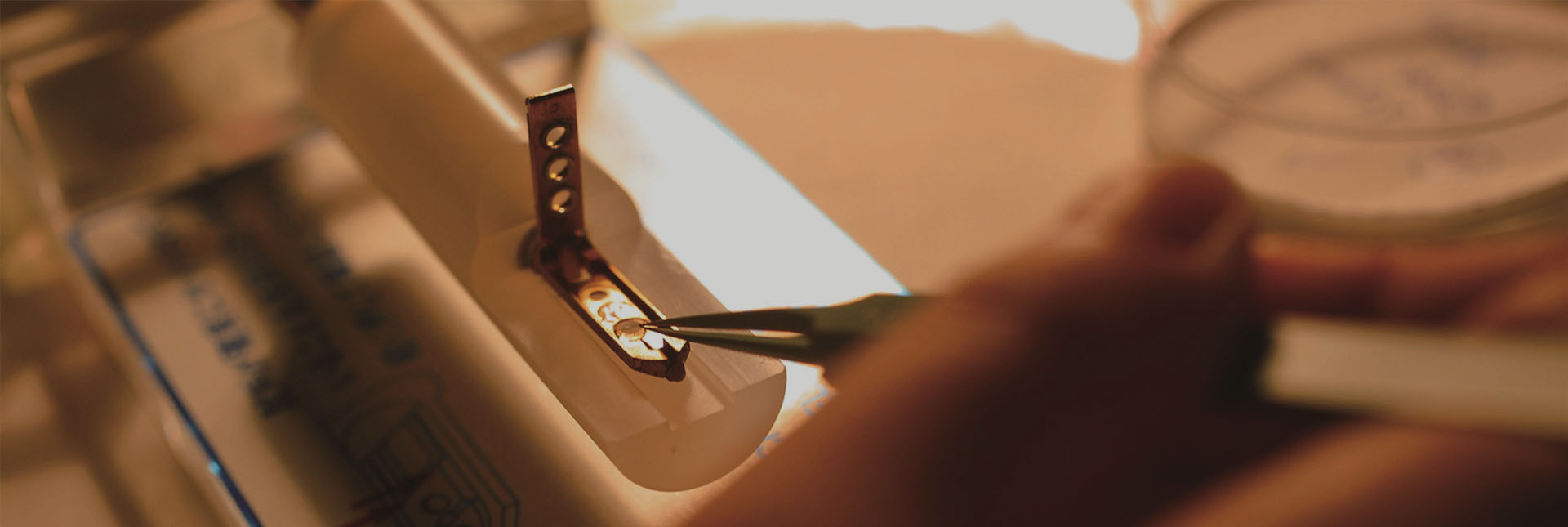WANG Xinhua

WANG Xinhua
Email: wangxinhua@renji.com
Tel: 13651641496
Research Fields: 心律失常的基础和临床研究
Biography
Graduated from Wuhan University 1st Clinical College and awarded M.D. degree of internal medicine. Becoming Chief of EP Division, Department of Cardiology, Renji Hospital, Shanghai Jiao Tong University School of Medicine since 2012. Vice Chairman of the Youth Committee of the Biomedical Engineering Society of China since 2019. Member of the Standing Committee of Shanghai Heart Rhythm Society. Awarded the Second-Class Prize of The National Science and Technology Progress Prize in 2010, the First-Class Prize of The National Science and Technology Progress Prize in 2010, and the First-Class Prize of Shanghai Medical Science and Technology Progress Prize in 2010.
Specialized in the fundamental study of arrhythmia for more than ten years. Carried out two studies about the role of sodium channel dysfunction (the If current) of pulmonary vein myocardial sleeve in the genesis of atrial fibrillation, and the genetic mutation of TBX20 being one of the virulence genes involved in familial atrial fibrillation. In another one study, the association of bile acid with myocardial fibrosis and arrhythmogenesis was explored.
Focused on radiofrequency ablation therapy for tachyarrhythmias for more than fifteen years. Skillful in ablation therapy for supraventricular tachycardia, atrial fibrillation, atrial flutter and ventricular ectopic beats and ventricular tachyarrhythmias, especially for those arrhythmias complicating cardiac surgery, advanced age and multiple comorbidities. Took part in 3 multicentral clinical studies about thromboembolic prevention and novel techniques for atrial fibrillation ablation.
Awarded Member and Demonstration Base of National AF center since 2019. Having a great volume of AF cases of all EP labs in Shanghai. Took an active part in health education and chronic care management for atrial fibrillation.
Publications
Kong Ling-Cong,Shuang Tian,Li Zheng et al. A Systemic Mapping Approach for Right and Left Parahisian Ventricular Arrhythmias Ablation.Front Cardiovasc Med, 2022, 9: 844320.
Wang Xin-Hua,Kong Ling-Cong,Shuang Tian et al. Macro-reentrant atrial tachycardia after tricuspid or mitral valve surgery: is there difference in electrophysiological characteristics and effectiveness of catheter ablation?[J] .BMC Cardiovasc Disord, 2021, 21: 538.
Wang Xin-Hua,Kong Ling-Cong,Li Zheng et al. Mitral isthmus block is associated with favorable outcomes after reablation for long-standing persistent atrial fibrillation.[J] .Clin Cardiol, 2020, 43: 1119-1125.
Wang Xin-Hua,Li Zheng,Zang Min-Hua et al. Circulating primary bile acid is correlated with structural remodeling in atrial fibrillation.[J] .J Interv Card Electrophysiol, 2020, 57: 371-377.
Wu Shao-Hui,Wang Xin-Hua,Xu Ying-Jia et al. ISL1 loss-of-function variation causes familial atrial fibrillation.[J] .Eur J Med Genet, 2020, 63: 104029.
Wang Xin-Hua,Li Zheng,Mao Jia-Liang et al. Low voltage areas in paroxysmal atrial fibrillation: The prevalence, risk factors and impact on the effectiveness of catheter ablation.[J] .Int J Cardiol, 2018, 269: 139-144.
Wang XH, Li Z, Mao JL, et al. Electrophysiological features and catheter ablation of symptomatic frequent premature atrial contractions. Europace 2016:doi.1093/europace/euw152
Wang XH, Li Z, Mao JL, et al. A novel individualized substrate modification approach for the treatment of long-standing persistent atrial fibrillaton. Int J Cardiol 2014;175:162-168
Wang XH, Huang CX, Wang Q, et al. A Novel GATA 5 Loss-of-function mutation underlies lone atrial fibrillation. International Journal of Molecular Medicine 2013;31:43-50
Wang XH, Huang CX, Liu X, et al. Ablation of atrial tachycardia occuring after catheter ablation of atrial fibrillation in patients with corrected rheumatic valvular disease. J Interv Card Electrophysiol 2012; 35:45-56
Wang XH, Liu X, Shi HF, et al. Early recurrences after paroxysmal atrial fibrillation ablation: when is the proper timing for reablation? PACE 2011;34:709-16
Wang X, Liu X, Shi H, et al. Pulmonary vein isolation combined with substrate modification for persistent atrial fibrillation treatment in cases with valvular heart diseases. Heart 2009; 95: 1173-83
Wang X, Shi H, Han B, et al. Catheter ablation of atrial fibrillation in a patient with dextrocardia: what is the challenge? Chinese Medical Journal 2012;125:12-5
Yang YQ, Wang XH, Tan HW, et al. Prevalence and spectrum of GATA6 mutations associated with familial atrial fibrillation. Int J Cardiol 2012; 22;155: 494-6 (Co-first Author)
Tan HW, Wang XH, Shi HF, et al. Congestive heart failure after extensive catheter ablation for atrial fibrillation: prevalence, characterization, and outcome. J Cardiovasc Electrophysiol 2011;22:632-7
Liu X, Tan HW, Wang XH, et al. Efficacy of catheter ablation and surgical CryoMaze procedure in patients with long-lasting persistent atrial fibrillation and rheumatic heart disease: a randomized trial. European Heart Journal 2011; 31:2633-41



